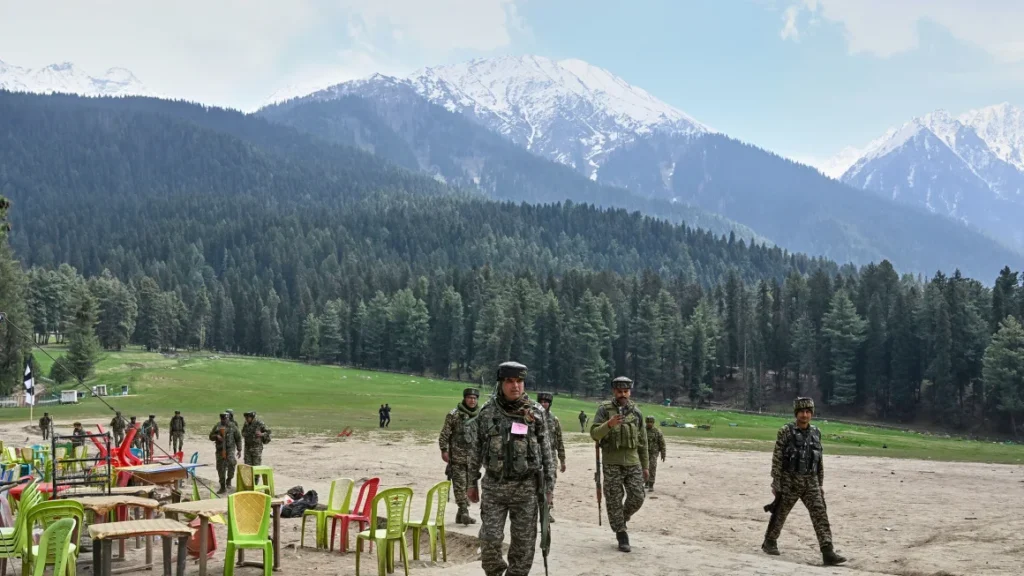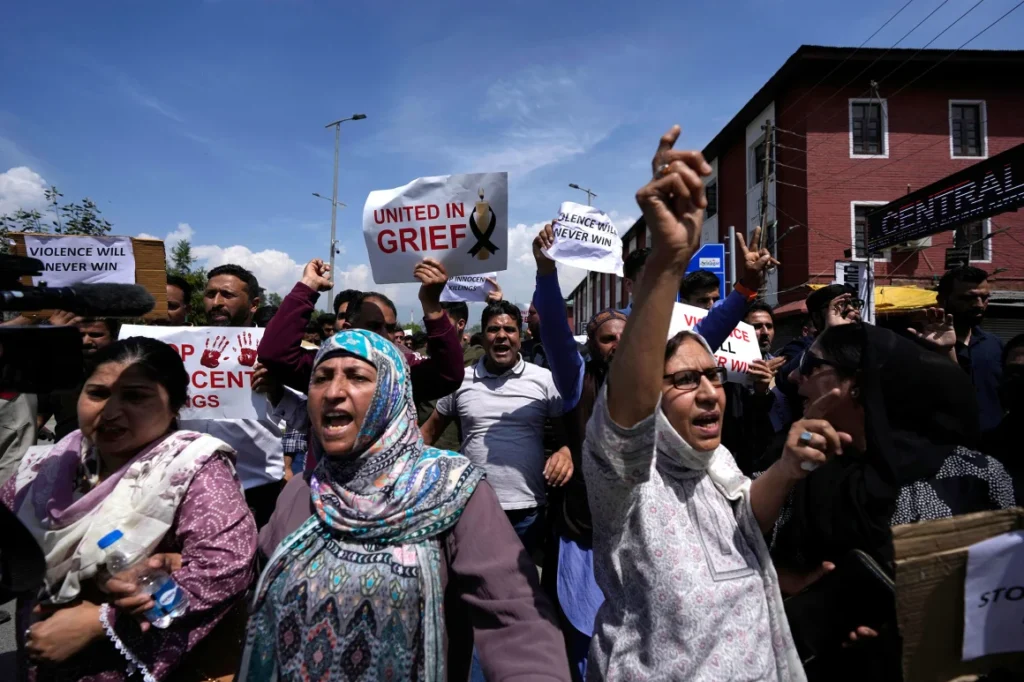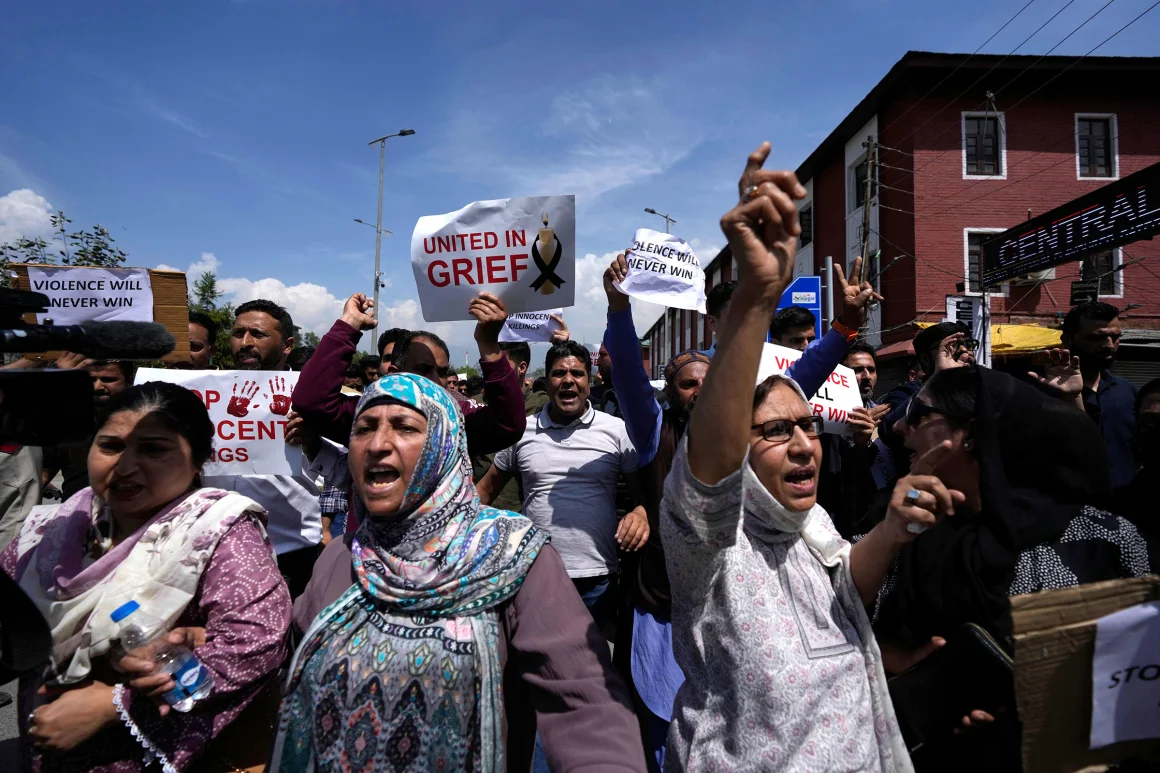Tensions between India and Pakistan have escalated to alarming levels following a brutal militant attack on tourists in Indian-administered Kashmir. With both nuclear-armed nations trading diplomatic blows and military threats, fears of a fresh conflict are rising fast.
Massacre in Pahalgam: A Peaceful Retreat Turns Into a Killing Ground
On April 22, gunmen opened fire on a group of tourists in Pahalgam, a popular mountainous getaway in Indian-controlled Kashmir. The assault claimed the lives of 26 people—25 Indians and one Nepali. Survivors described a horrifying scene, saying attackers approached on foot and began shooting at close range, selectively targeting men in the group.

Immediate Fallout: India Blames Pakistan, Cuts Diplomatic Ties
India swiftly blamed Pakistan for supporting the attackers, downgrading diplomatic ties and suspending its participation in the decades-old Indus Water Treaty. The treaty, which governs water sharing of the vital Indus River system, had been seen as a rare pillar of stability in India-Pakistan relations.
Pakistan denied involvement, calling India’s actions “provocative and dangerous,” and warned that any interference with its water rights would be treated as an act of war.
Who’s Behind the Attack? Confusion and Contradictions
No group has firmly claimed responsibility for the massacre. A shadowy group known as Kashmir Resistance (also called The Resistance Front or TRF) initially posted a claim online but later distanced itself. Indian authorities have pointed fingers at Lashkar-e-Tayyiba (LeT), the Pakistan-based group accused of orchestrating the 2008 Mumbai attacks.
Three suspects—two of them identified as Pakistani nationals—have been named in official notices by Indian police. However, no detailed evidence has been made public yet.
Escalating Military Posture: Missiles, Airspace, and Water Wars
India responded with the closure of border crossings, restrictions on Pakistani visas, and the expulsion of Pakistani military advisors. In a show of military strength, India’s navy conducted test missile strikes.
Pakistan retaliated by closing its airspace, suspending trade with India, and expelling Indian diplomats. It also issued warnings over India’s move to suspend the water treaty, calling it illegal and aggressive.
Kashmir on Edge: Protests, Crackdowns, and Public Grief
The region of Kashmir is once again in turmoil. Security forces are conducting wide-scale operations to track down the attackers. Armed encounters have already begun, including a shootout in Bandipora district.
Meanwhile, grief and anger ripple through local communities. Protests erupted in Srinagar, with residents demanding justice for the victims. Business owners fear a sharp decline in tourism, especially during the peak season.
National Outrage: Anti-Pakistan Sentiment Spreads Across India
In Delhi and other major cities, anti-Pakistan protests broke out in the days following the attack. There is growing concern that the violence may stoke anti-Kashmiri and anti-Muslim sentiment within India, especially under Prime Minister Modi’s Hindu-nationalist government.

What Comes Next? The Risk of War Looms
Experts warn that India’s response may mirror its 2019 airstrike campaign against Pakistan after a similar attack. Back then, India struck targets deep inside Pakistani territory—a move that nearly pushed both nations to the brink of war.
“The big question,” says Stanford University security expert Arzan Tarapore, “is whether India will confine its retaliation to militant targets, or extend it to Pakistan’s military infrastructure itself.”
With both sides digging in and refusing to de-escalate, the threat of another cross-border military conflict is real—and potentially imminent.




